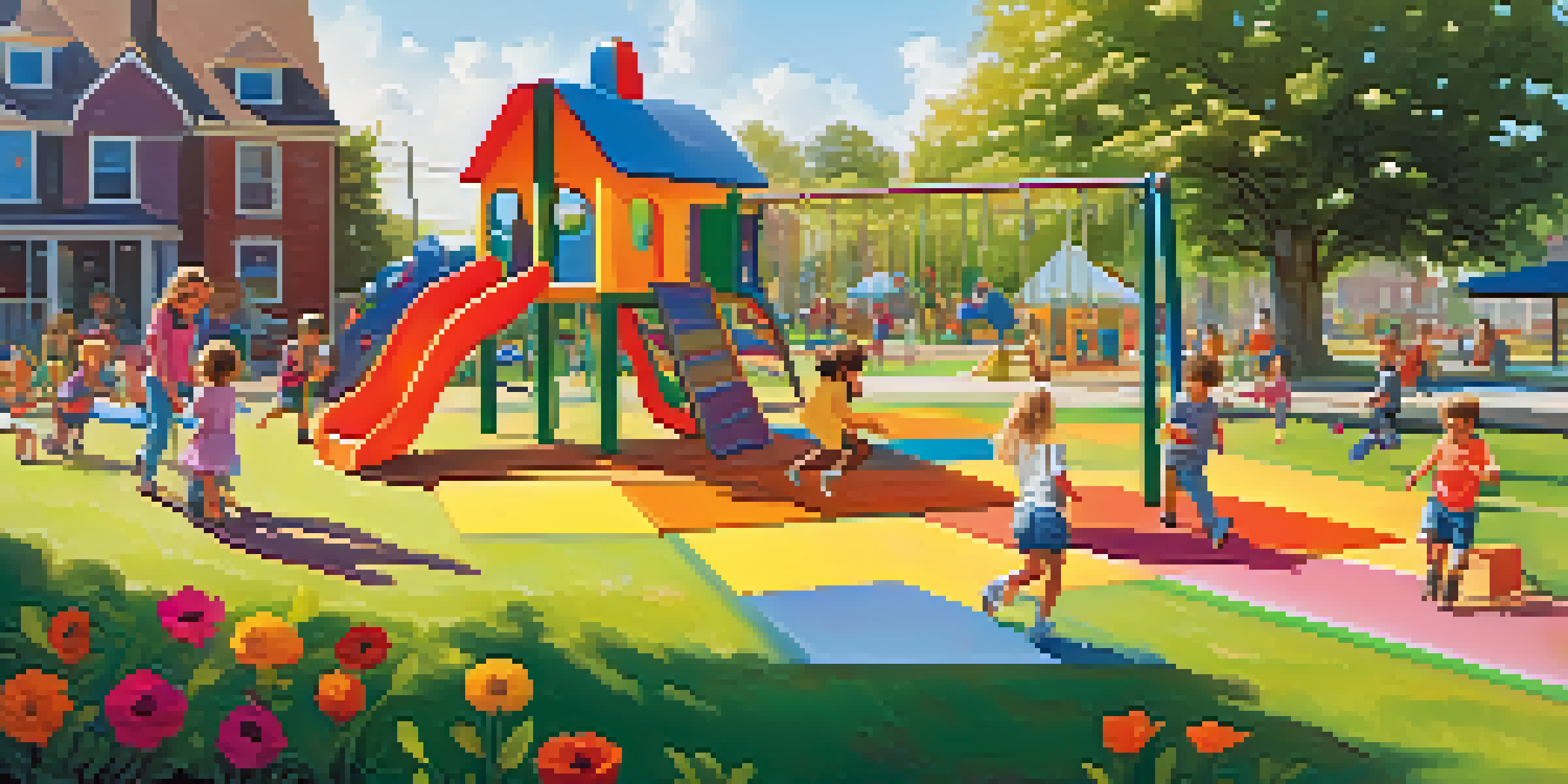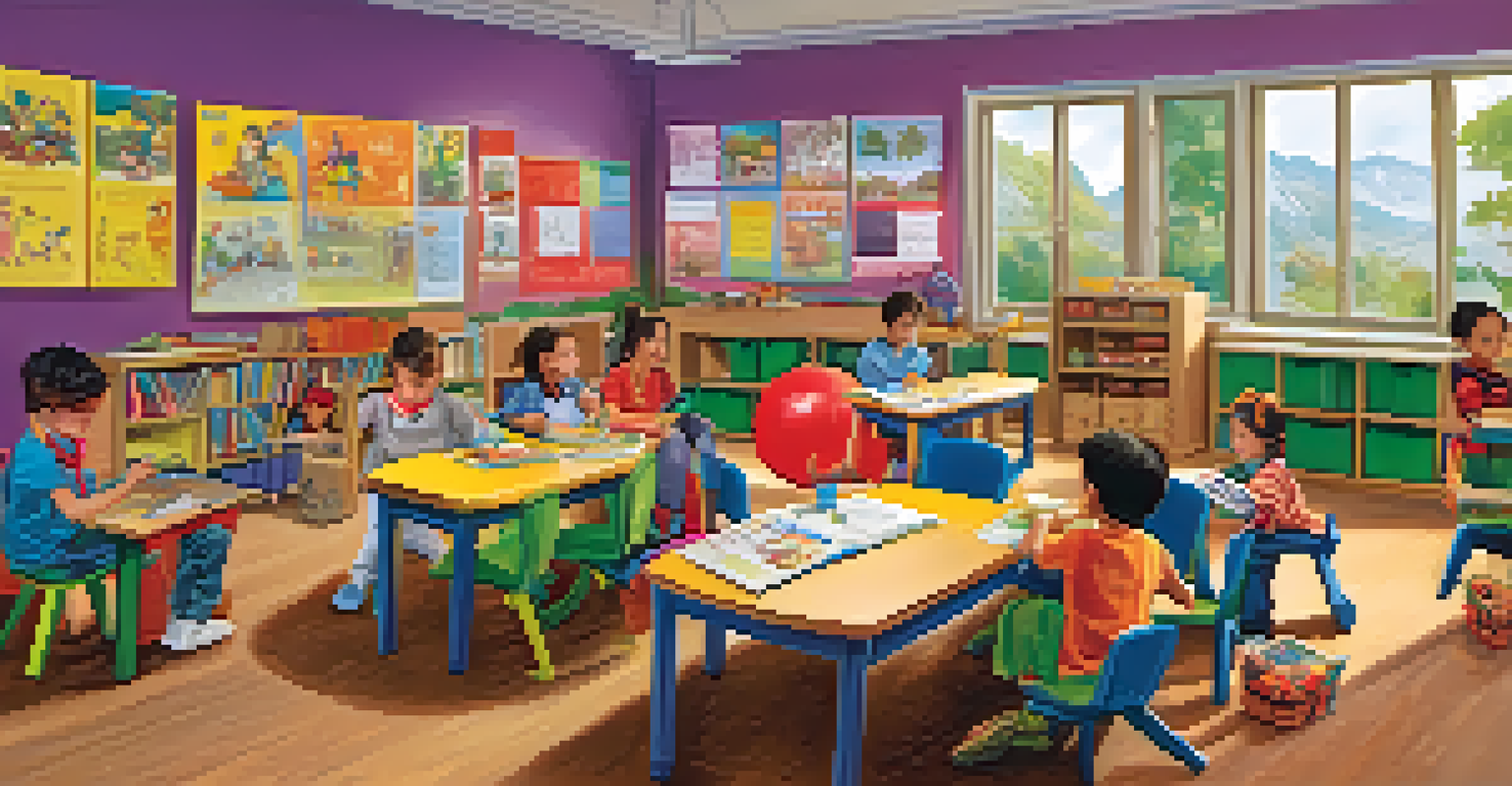The Role of Play in Cognitive Flexibility Among Children

What is Cognitive Flexibility in Children?
Cognitive flexibility refers to the ability to adapt one's thinking and behavior in response to changing environments. For children, this skill is crucial as it helps them navigate social interactions, solve problems, and approach new challenges. Essentially, it's about being able to switch gears when needed, which is a foundational component of critical thinking.
Play is the highest form of research.
Imagine a child trying to build a tower with blocks. If the blocks keep falling, cognitive flexibility allows them to rethink their approach and try different configurations. This adaptability not only fosters creativity but also prepares them for real-life situations where change is constant.
Developing cognitive flexibility early on can lead to better academic performance and improved social skills. Children who are flexible thinkers often find it easier to collaborate with peers and tackle complex tasks, setting a strong foundation for lifelong learning.
The Concept of Play and Its Importance
Play is often seen as just fun and games, but it's actually a vital part of children's development. Through play, children explore their environment, learn new skills, and interact with others, all of which are key to cognitive growth. Think of play as a workshop where children hone their thinking abilities while having a blast.

Whether it's imaginative play with dolls or structured games with rules, each type of play enhances different aspects of cognitive flexibility. For instance, when children engage in role-playing, they practice perspective-taking, which is crucial for understanding others' viewpoints and adapting their responses accordingly.
Cognitive Flexibility is Crucial
This skill helps children adapt their thinking and behavior in response to changing environments, enhancing their problem-solving abilities.
Moreover, play provides a safe space for children to experiment and make mistakes. This trial-and-error process is essential for developing resilience and a willingness to adapt, both of which are fundamental traits of cognitive flexibility.
Types of Play That Foster Cognitive Flexibility
Different types of play serve distinct purposes in promoting cognitive flexibility. Unstructured play, like free play in a park, encourages children to create their own games and rules, fostering improvisation and adaptability. This type of play is often spontaneous, allowing children to think on their feet and adjust their strategies as they go.
Children learn as they play. Most importantly, in play, children learn how to learn.
On the other hand, structured play, such as board games or team sports, introduces rules that require children to follow directions while also thinking critically about how to win or collaborate. Such activities challenge children to shift their strategies based on their opponents' moves, enhancing their ability to adapt.
Both forms of play are integral to developing a well-rounded approach to cognitive flexibility. By engaging in various types of play, children learn to navigate different scenarios, which helps them become more versatile thinkers.
How Social Play Enhances Cognitive Flexibility
Social play, where children interact with peers, is particularly beneficial for cognitive flexibility. Through cooperative games or group activities, children learn to negotiate, share, and compromise, all of which require them to adjust their thinking based on the needs and actions of others. This interaction is a real-world application of cognitive flexibility in action.
For example, in a game of tag, children must constantly adapt their strategies based on who is 'it' and how their friends are moving. This not only keeps the game exciting but also sharpens their ability to change their approach quickly.
Play Enhances Cognitive Growth
Through both structured and unstructured play, children develop essential skills like creativity and resilience that foster cognitive flexibility.
Additionally, social play helps children develop empathy and emotional intelligence, as they learn to recognize and respond to the feelings of their peers. This enhanced understanding contributes to a more flexible mindset, allowing them to navigate social complexities with ease.
The Role of Parents in Encouraging Play
Parents play a crucial role in fostering an environment that encourages play. By providing opportunities for both structured and unstructured play, parents can help their children develop cognitive flexibility. This can be as simple as setting aside time for playdates or encouraging outdoor activities that inspire creative thinking.
Moreover, parents can engage in play alongside their children, modeling flexibility and adaptability in real-time. When children see their parents adjust rules during a game or try new strategies, they learn that it's okay to modify their approach when faced with challenges.
Encouraging a variety of play experiences also exposes children to different perspectives and ways of thinking, further enhancing cognitive flexibility. By being active participants in their children's play, parents help lay the groundwork for resilient and adaptable thinkers.
Educational Settings: Play in the Classroom
Educational settings are increasingly recognizing the importance of play in promoting cognitive flexibility among children. Many schools are integrating play-based learning into their curricula, allowing children to explore concepts through hands-on activities rather than traditional rote learning. This approach encourages creativity and critical thinking.
For instance, in a classroom where children are allowed to engage in role-playing scenarios related to their lessons, they can better understand different perspectives and apply their knowledge in practical ways. This not only makes learning fun but also enhances their ability to adapt to new information.
Long-Term Benefits of Play
Engaging in diverse play experiences equips children with adaptability and problem-solving skills that benefit them into adulthood.
Furthermore, teachers can facilitate collaborative projects that require problem-solving and flexible thinking, such as building projects or science experiments. These activities help children learn to work together, adjust their ideas, and ultimately become more flexible thinkers.
Long-Term Benefits of Play on Cognitive Flexibility
The benefits of play on cognitive flexibility extend far beyond childhood. Children who engage in diverse play experiences often carry these skills into adulthood, enhancing their ability to adapt to new situations and tackle complex problems. This adaptability is a valuable trait in today's fast-paced world.
For example, adults with strong cognitive flexibility are often more successful in their careers, as they can navigate changes in the workplace and collaborate effectively with colleagues. The lessons learned through play—such as resilience and creative problem-solving—are invaluable in both personal and professional settings.

Ultimately, investing time in play during childhood is investing in a child's future. By fostering cognitive flexibility through play, we equip children with the tools they need to thrive in an ever-changing world.